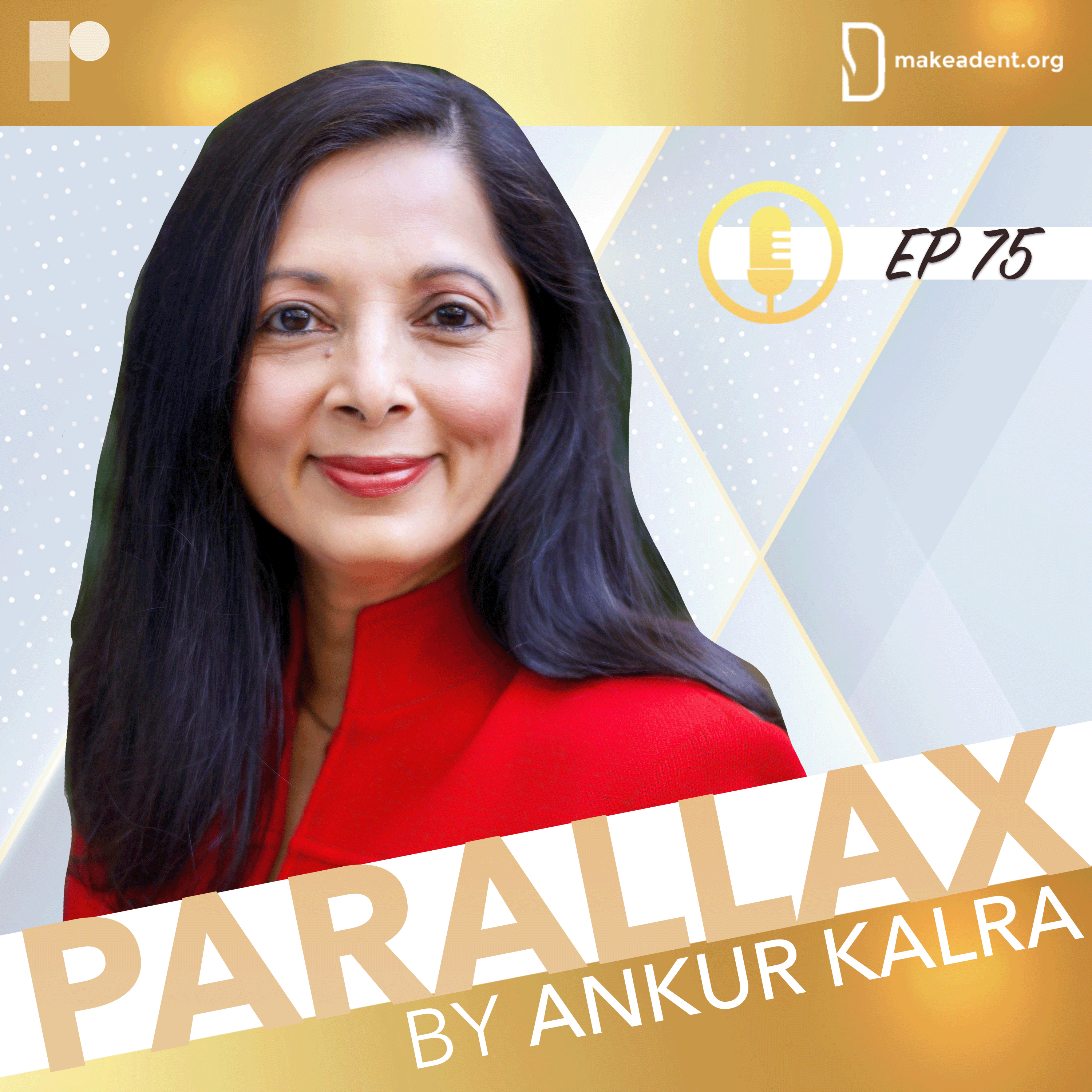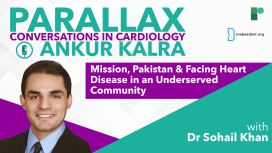
Dr Dipti Itchhaporia, 70th President of the American College of Cardiology (ACC), always met her fears with actions. One of her motivations to become a cardiologist was to be able to act in the face of acute situations. When Dr Itchhaporia, the fifth woman and the first of South Asian descent to fill in this position, was asked to summarise her presidential year, she answered: flourishing in opposition of languishing.
Dr Ankur Kalra’s guest in this episode of Parallax is Dr Dipti Itchhaporia, ACC Immediate-Past President, an interventional cardiologist and the Eric and Sheila Samson Endowed Chair in Cardiovascular Health, director of disease management for Hoag Heart and Vascular Institute, and associate professor at the University of California, School of Medicine.
In this personal interview, Dr Itchhaporia recalls her early years and the influences and decisions that led her to medicine and cardiology. She talks about her connection to ACC and the importance of choosing a professional home where one can find their purpose under the mentorship of their community. Ankur asks Dr Itchhaporia about the most memorable moments of her presidency. They talk about South Asian identity and curbing CVD in this population.
How does Dr Itchhaporia think about representation and the meaning of her historical position at ACC? What is Dr Itchhaporia’s message to women in cardiology?
Questions and comments can be sent to “podcast@radcliffe-group.com” and may be answered by Ankur in the next episode. Guest, @ditchhaporia hosted by @AnkurKalraMD. Produced by @RadcliffeCARDIO.

Dr Khan talks about education in the US and his decision to move back to Pakistan. Ankur asks Sohail about his new professional home: NICVD, a free clinic providing primary heartcare for Pakistanis. They discuss some of the innovations Dr Khan works on to improve patient care that utilise simple but effective interventions. We learn more about free screening clinics and about Dr Khan’s work on the largest ever study in Pakistan on association of Lpa and CV disease in South Asians.


In this episode, Ankur and Danielle speak about the evidence in favour of a whole-food plant-based diet to improve cardiovascular health, the ACC prevention guidelines, how to talk to patients about positive dietary change, the issue of lack of nutrition training in cardiovascular fellowships and what Danielle’s diet looks like as a busy whole-food plant-based cardiology fellow. On her own podcast ‘Nutrition Rounds’ Danielle has discussions about evidence-based plant-based nutrition with physicians who are leading experts in nutrition and health.
Hosted by @AnkurKalraMD. Produced by @RadcliffeCardiology.

In this brilliant conversation, Ankur, Emmanouil and Michael unravel the potential advantages, challenges and practical realities of using drug-coated balloons in SVD, and the findings of the latest randomised controlled trials studying this area.
Hosted by @AnkurKalraMD. Produced by @RadcliffeCardiology. [Disclaimer: The use of drug-coated balloons in coronay intervention is still off-label; it has not been approved by the FDA.]

Dawn is an associate editor of the journal Circulation: Cardiovascular Interventions and is widely known for her research program on PCI and peripheral arterial disease (PAD). Ankur and J. Dawn discuss multiple trials/studies that were published in 2018, including ORBITA, PIONEER-II and ABSORB. J. Dawn also shares her thoughts on the latest stent technologies.
Hosted by @AnkurKalraMD. Produced by @RadcliffeCardiology.

They discuss the importance of preventative medicine, their experience of reducing hypertension with non-pharmaceutical and pharmaceutical methods, and the significance of the integrated “team approach” when treating comorbid conditions such as hypertension. Athena also shares her thoughts on cardiologists’ responsibility to shape their patients’ lifestyle choices.
Hosted by @AnkurKalraMD. Produced by @RadcliffeCardiology.

Chest pain is one of the most common reasons for an emergency room visit in the US, with almost 6 million ER visits annually, yet there is no consensus on how to compare the results from various hscTn assays. Tune in to hear Santiago outline the advantages and limitations of using hscTn as a standard biomarket to evaluate patients with suspected ACS in the ER.
Hosted by @AnkurKalraMD. Produced by @RadcliffeCardiology.





